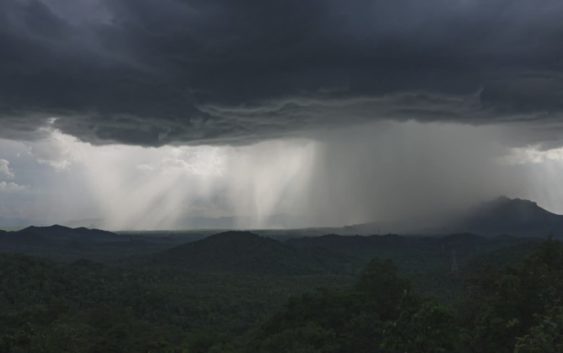- Carolina Beach is warning of potential King Tide flooding
- NCDEQ launches Hurricane Helene recovery grants program
- Why no hurricanes made landfall in the US in 2025
- Florence to begin interviewing police chief finalists in January
- A West Texas county wants to better prepare for floods. Paying for it will be tricky.
Severe weather dictionary: Terms you should know to raise your Weather IQ

Many of the storms we experience in the Carolinas are known as mid-latitude cyclones. Let’s break down what that means.
CHARLOTTE, N.C. — WCNC Charlotte is breaking down important weather terms to know to help keep you and your family safe.
Many of the storms we experience in the Carolinas are known as mid-latitude cyclones.
Mid-latitude refers to where the United States lies on a map, while cyclone refers to an area of low pressure that rotates counterclockwise in the Northern Hemisphere.
Mid-latitude cyclones drive most of the storm development in the continental U.S. — most often involving a warm front from the south and a cold front from the north.
When a storm develops, the clouds we see are cumulonimbus clouds towering high in the sky. Commonly known as thunderstorm clouds, these are the only clouds that produce hail, thunder and lightning.
For the latest weather alerts, download the WCNC Charlotte mobile app and enable push notifications.
Rain clouds, or nimbostratus clouds, are dark, gray, and thick enough to block out the sun. These also form along mid-latitude cyclones and other frontal systems, but they produce persistent rain – no storms.
Ever felt the rush of cool air before a storm arrives? You’ve probably experienced a gust front along a shelf cloud. Shelf clouds are low, horizontal and wedge shaped.
These form along the leading edge of a storm where the shelf cloud is attached to the base. Shelf clouds look extremely ominous and if you see one, head inside.
Contact Brittany Van Voorhees at bvanvoorhe@wcnc.com and follow her on Facebook, X and Instagram.
WCNC Charlotte’s Weather IQ YouTube channel gives detailed explainers from the WCNC Charlotte weather meteorologists to help you learn and understand weather, climate and science. Watch previous stories where you can raise your Weather IQ in the YouTube playlist below and subscribe to get updated when new videos are uploaded.